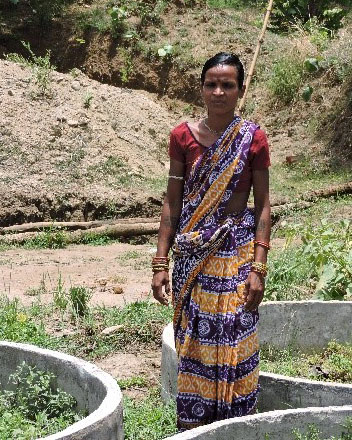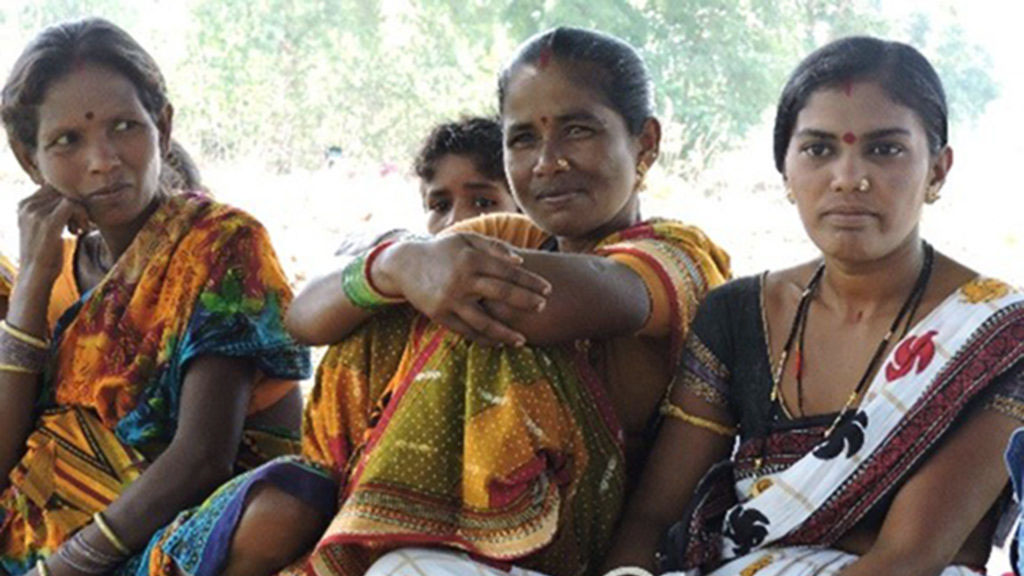Since 2008, Trickle Up and Lokadrusti have partnered to reach over 1,800 of the poorest women in 65 communities in western Odisha. The Maa Basteran Self-Help Group (SHG) was formed a year and a half ago by women participating in Trickle Up’s program in Haldikohl.
Most of the women in this SHG don’t own land or any other assets, so each year they used to migrate for work in order to earn enough for their families to survive. After starting the program, they no longer need to migrate as they now can earn an income at home. Though their fledgling businesses currently generate a bit less income than the women of Maa Basteran earned from migrating, this is income is steadier and more sustainable. They see a path towards increased earnings by improving and diversifying their business activities.
The SHG meets weekly to save, administer loans, and discuss members’ challenges and successes. Members started by saving 1-2 rupees ($0.02-0.03) a week, now they are saving 30 Rs. ($0.46) a week. At every meeting, the group discusses each individual woman’s situation and needs. They provide loans to women who require extra funds for health or business purposes. If someone has a hard time repaying a loan, the group works to grant her a more flexible repayment option and help her strategize for the future.
The group receives guidance and mentorship from Lokadrusti field workers and health staff not just on ways to save, but also ways they can improve their quality of life. Some changes they’ve made include using mosquito nets to reduce malaria and using ladles to take water to stop the spread of disease.
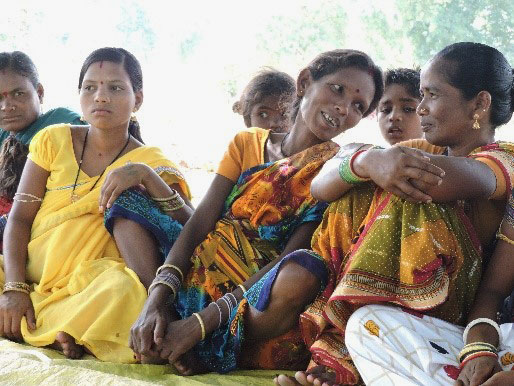
Women of the Maa Basteran SHG
Tebha Bewa
Tebha Bewa is a widow, and before the program she had no land and lived in a small thatched hut with no way to support her daily needs. Through a local program, Tebha was eligible for a government-funded house; however, during a community meeting to finalize the list of recipients of this grant, Tebha’s name was removed from the list and replaced by a more powerful and well-off person in the community. When her SHG found out, they accompanied Tebha to the local government office to advocate on her behalf. They also alerted Lokadrusti and requested their support in discussing the issue with high-level officials.
Together, they succeeded in securing Tebha’s access to this program, and now she has a better home. She tells us she is very grateful that her fellow members stood up for her, since she never had such support before the program.
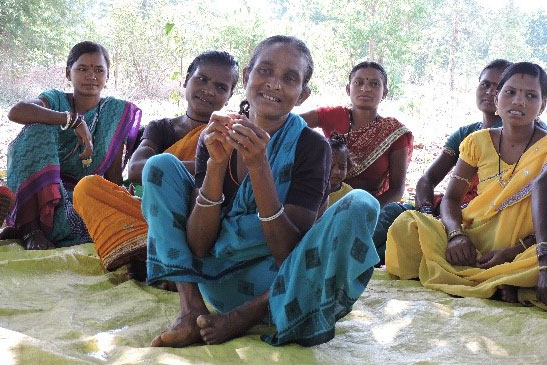
Nabina Saraf
Before joining the Maa Basteran SHG in 2013, Nabina Saraf migrated every year to find work to support her husband and two young daughters. Before, one of Nabina’s only possessions was a small suitcase that she took with her when looking for work.
With a seed capital grant from Trickle Up, she started a seasonal vegetable vending business and leased land to cultivate vegetables and rice paddy. In addition, with Lokadrusti’s help, her husband secured a part time job as a driver so he no longer has to migrate either. With their profits, Nabina purchased new cookware to improve their living conditions.
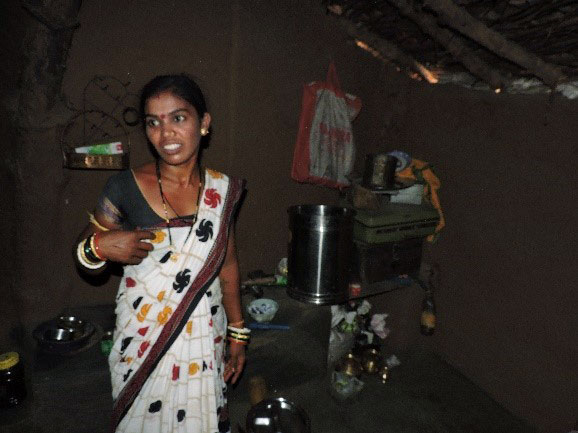
Chandrakanti Pandey
When Chandrakanti Pandey joined Trickle Up’s program, she was pregnant. She used some of her seed capital to lease land and made a profit of 1,000 Rs. ($15.34) from her agriculture, but she was disappointed she couldn’t begin a more profitable activity. To help her, partner staff from Lokadrusti recommended that she start a kitchen garden. She began to grow onions and other crops for her family to eat and to sell at the local market.
A few months after her baby boy was born, she was able to begin working again and is confident she will see greater profits. With Lokadrusti’s help, she also received tiles to repair her roof through a government program.
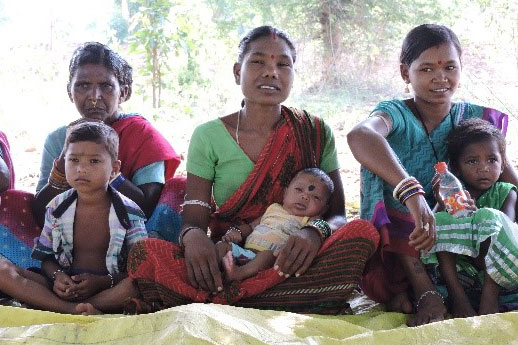
Niti Harijan
Niti Harijan used her Trickle Up seed capital to lease land. She now grows vegetables and spices that she sells door-to-door and at the local market.
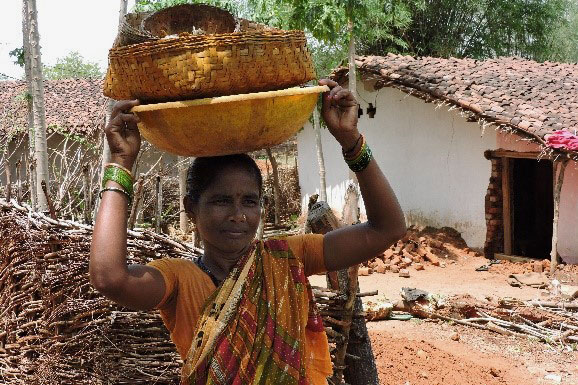
Urmila Majhi
Urmila Majhi owned a small plot of land, but it was difficult to cultivate any crops because she lacked proper irrigation. With her Trickle Up seed capital grant, she purchased rings for a dug well. With an investment of 5,000 Rs. ($77), Urmila and her husband were able to grow enough onions to earn 20,000 Rs. ($307). Now they can diversify their crops.
To date, our partner Lokadrusti has helped 93 families build 74 wells, increasing access to clean water and crop irrigation!
